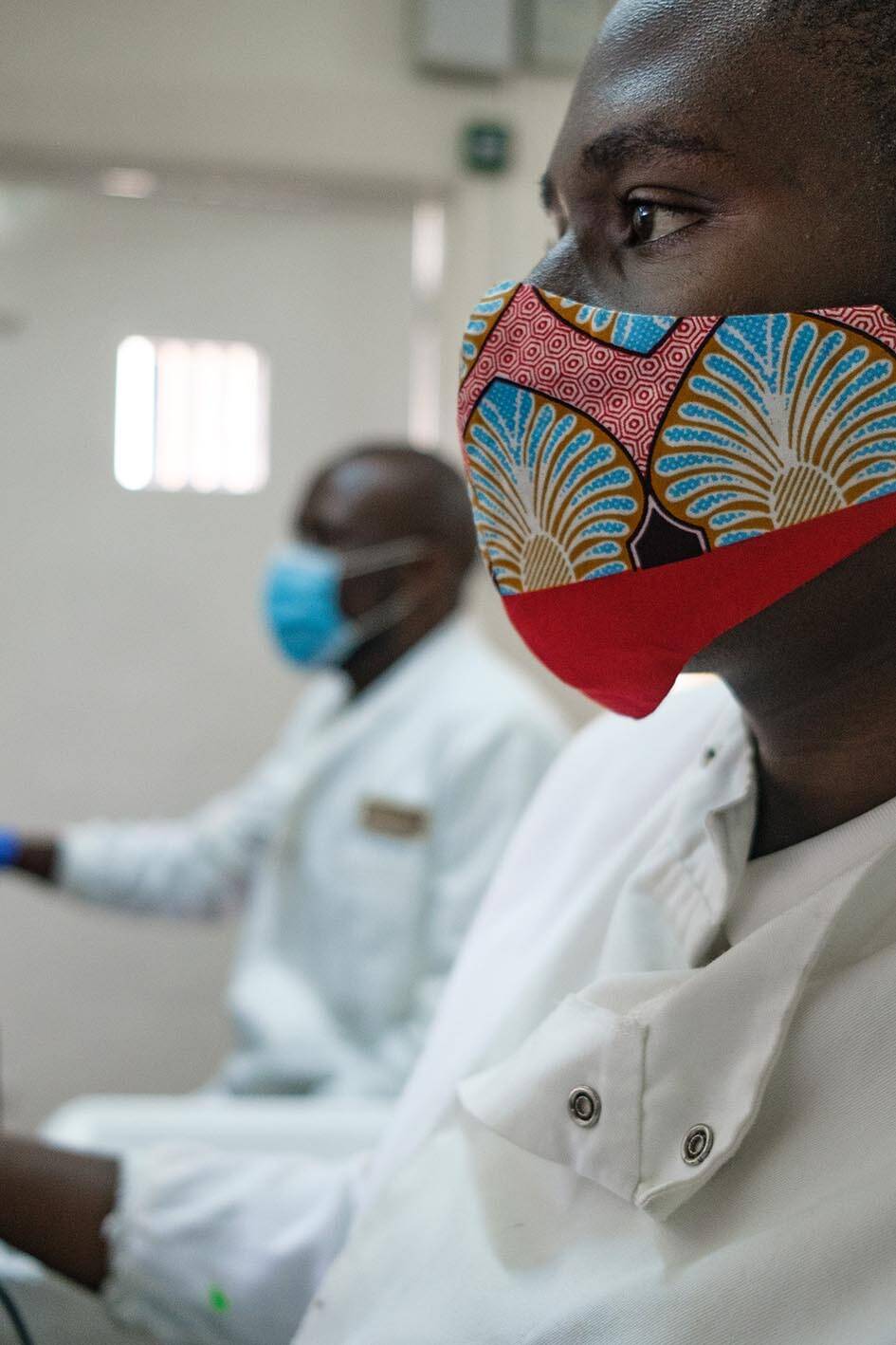
Foreword
scroll down
Building on success
The third EDCTP programme – Global Health EDCTP3 – will build on and extend the successes of EDCTP2.
Professor Yazdan Yazdanpanah
Chair, EDCTP General Assembly

EDCTP2 and Global Health EDCTP3 will continue to run side by side as the new programme launches and EDCTP2-funded projects carry on their planned activities. A seamless transition will ensure that the core EDCTP elements are carried through to the new programme – helping to drive forward health research for Africa, led by Africa, for the benefit of African people.
Finally, 2021 has been notable for the great progress made in the development of the successor to the EDCTP2 programme – Global Health EDCTP3. This exciting new Joint Undertaking will have a new legal basis, but will continue to have the same core mission as EDCTP2 and will carry forward the principles that have made EDCTP2 such a success.
However, not only will Global Health EDCTP3 be on a grander scale, with an anticipated budget potentially in excess of €1.6 billion, but it will also have an expanded scope, including activities related to the emergent threats of antimicrobial resistance and climate change. It will also provide additional flexibility, enabling innovative new partnerships to be developed with additional countries, global funders and the private sector.
The theme of the Forum, equity in health research, highlighted an important aspect of our work. While excellence must always be core to the research we fund, we also need to acknowledge that countries are not equally well placed to generate compelling research proposals. Indeed, some countries with the greatest disease burdens are those least able to do so. By linking researchers and research institutions in these countries to regional and global networks, we are helping to build the capacity of all countries to carry out research to better understand and address their health challenges.
Similarly, female scientists face multiple barriers as they seek to develop their research careers, particularly at senior levels. We are taking steps to understand and address these barriers, and to ensure that our own activities are not inadvertently discriminatory. The launch of a new UK-funded Participating States-Initiated Activity to support early-career female researchers, in association with EDCTP Regional Networks of Excellence, is an important indication of the importance we attach to this issue.
As outlined elsewhere in this Annual Report, EDCTP is represented on multiple committees and advisory groups with an interest in health research in sub-Saharan Africa. This is vital to enable us to stay abreast of the key issues facing the region and to build the relationships needed to ensure coordinated and effective responses to them. EDCTP has made important contributions to the rapid response to the pandemic in the region, through specific project funding but also by helping to build research platforms and scientific expertise that could be harnessed to address pandemic challenges.
Following a COVID-19-related delay, the Tenth EDCTP Forum finally took place in 2021, providing opportunities for EDCTP grant holders to showcase their work and network with international colleagues. Hosted by Mozambique, the Forum was a hybrid event, with delegates attending in person or virtually. Although meeting others personally has advantages, the virtual element enabled many others to participate in a very exciting programme of scientific events.
At the same time, EDCTP has played an important role in the development of health research system capacities in sub-Saharan African. It is essential that these activities are developed in partnership with local agencies, and EDCTP has made great efforts in 2021 to strengthen its relationships with key regional partners.
For example, EDCTP has long-standing partnership with the WHO Regional Office for Africa. In 2021, it also strengthened its ties with the African Union, signing a landmark memorandum of understanding that will see close collaboration on the key health issues facing the region, particularly in relation to infectious disease control and pandemic preparedness. A critical element of this partnership will be a close working relationship with the Africa Centres for Disease Control and Prevention (Africa CDC).
The most noteworthy aspect of this partnership in 2021 was the award of funding to ten consortia that will be running training programmes for 150 epidemiologists and biostatisticians. These programmes will train a new generation of experts who will make an important contribution to the monitoring and response to existing and new infectious disease threats across a wide swathe of countries in sub-Saharan Africa, including those with a high disease burden but currently underdeveloped health research systems.
Among the many impacts of COVID-19 was the disruption of research activities, as multiple projects had to suspend recruitment or other activities. Last year saw many COVID-19-related barriers overcome, with project activities returning to near normal. As can be seen from the stories in this Annual Report, research collaborations have been highly active progressing projects, recruiting participants and publishing results.
EDCTP has now developed an extremely strong portfolio across its diseases of interest. The studies it is funding promise to make a significant contribution to the advancement of diagnostics, vaccines, drugs and other interventions for the most important infectious diseases affecting sub-Saharan Africa, benefiting its most vulnerable populations, including infants, children, adolescents and pregnant women.
“The studies it is funding promise to make a significant contribution to the advancement of diagnostics, vaccines, drugs and other interventions for the most important infectious diseases affecting sub-Saharan Africa.”
— Professor Yazdan Yazdanpanah
